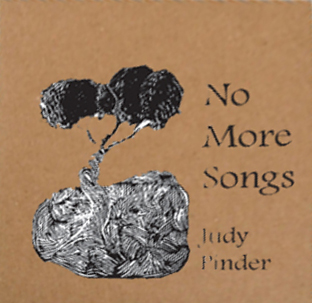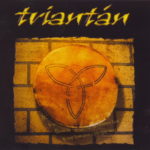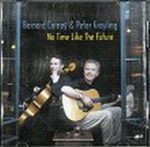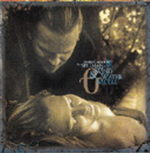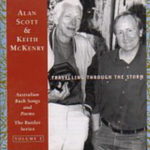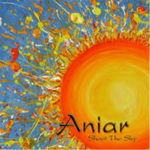Description
CD Review by Chris Spencer
Who is Judy Pinder?
You may well ask as I did when I received this CD in the mail to review. I hope that after reading this review, you may be more informed and will want to purchase this CD. First of all, I was intrigued by the title, an odd title for an album of 17 songs!
However the album is named after the last track on the CD, “No More Songs” written by Phil Ochs. Pinder also performs with Irish music group Cailleach, and has released a previous CD called ‘Foreign Shore’. She also presents workshops in traditional song; she is a printmaker and civil celebrant residing in Yass NSW.
The songs on this CD vary between English and Gaelic; Pinder alternates between singing in either language. The lyric sheet has the words in both languages so you can be puzzled how the written word is sung in Gaelic.
Similarly the songs are a mixture of traditional and covers of some well known writers and some obscure ones. She covers: “The White Dress” written by Dave Swarbrick, “I Can Hew” by David Dodds, “Cumha” (credited to Padraig O Faoileain), and the pre-mentioned Ochs. The arrangements are bleak! Pinder relates in the liner notes that several recordings were done in the St Augustine Hall, providing an unusual but pleasant sound, that she felt would be difficult to duplicate in a studio where the other songs were recorded. Songs such as “Inion an Fhaolt on Ghleann”, “Na Gamhna Geala”, “The Rocks of Ban”, “Siuil a Run” and “Cailin Deas Donn” are sung without accompaniment. Others have a single instrument such as a harmonica played by Anthony Harkin on “Sally Gardens” and “Carrickfergus”. (Incidentally, there’s a hidden track at the end which is a harmonica solo!).
“Cumha” features the guitar of Luke O’Neill and simple percussion, while “Bean Phaidin” and “P Stands for Paddy” just have a guitar. The album is arranged and produced by Colm O Foghlu.
Listeners have to wait until the last song on the album, “No More Songs” to hear a drum beat and even then it’s a brush stroke!
The strongest tracks to my ears are “The Blacksmith”, “The White Dress”, “I Can Hew”,”Casadh an tSugain” and “Carrickfergus”.
Pinder does not have a sweet voice, it’s kind of rough but has its own character that is not unpleasant to my ears. At times when I wasn’t listening closely, her voice sounded masculine, much like a tenor.
For those readers who prefer their folk more traditional than contemporary, I suggest you will like this album. I now want to go back and hear her first!
CD review by 2021 Tony Smith
Judy Pinder has provided one of three remarkable voices that combine to form Triantan – the Triangle.
Fans will have noticed that Pinder often sings the bottom line, below Anthony Woolcott and Miguel Heatwole.
Her voice is deep and rich and smooth.
It is the kind of voice that K.D. Lang has described as a gift which must be nurtured.
On No More Songs, an album of 17 tracks (plus a harmonica ‘bonus’), Pinder shows exactly how special her voice is.
The title track and suitably the last song on the CD is by Phil Ochs.
Pinder also gives great renditions of ‘I Can Hew’ a rousing coal mining song by David Dodds, ‘Cumha’ by Padraig O’Faoileain and Dave Swarbrick’s ‘The White Dress’.
Generally, the repertoire here is traditional Irish and 8 tracks are in Gaelic.
Harmonica is by Anthony Harkin and guitar by Luke O’Neill, while Colm O’Foghlu provides ‘arrangements and backing’ on keyboard.
The support by these musicians is excellent but Pinder’s voice is at its best in the seven unaccompanied songs.
In the case of the songs in Gaelic, a sheet of lyrics ensures that the listener can follow.
A couple of these songs such as ‘Bean Phaidin’ and ‘Siull A Run’ will be familiar to listeners anyway.
Others such as ‘Na Gamhna Gealia’, ‘Casadh An tSugain’, ‘Trua Ghear’, ‘Cailhin Deas Donn’ and ‘Inion an Fhaoit on Na Ghlean’ are beautiful mysteries waiting to be unlocked.
Pinder’s singing in English includes ‘The Blacksmith’, ‘The Recruited Collier’, ‘The Rocks of Ban’, ‘Carrickfergus’ and ‘P Stands for Paddy’.
All have strong themes of love and loss and you will not hear better or more poignant versions.
Following the lyric sheet makes a couple of facts about Judy Pinder’s singing immediately clear.
The first is that Pinder’s voice is always perfect in pitch.
The second is that her timing and breath control are awe inspiring.
It all just seems to come to her so naturally and effortlessly.
We can but hope that many more such beautiful songs come our way from Judy Pinder.
